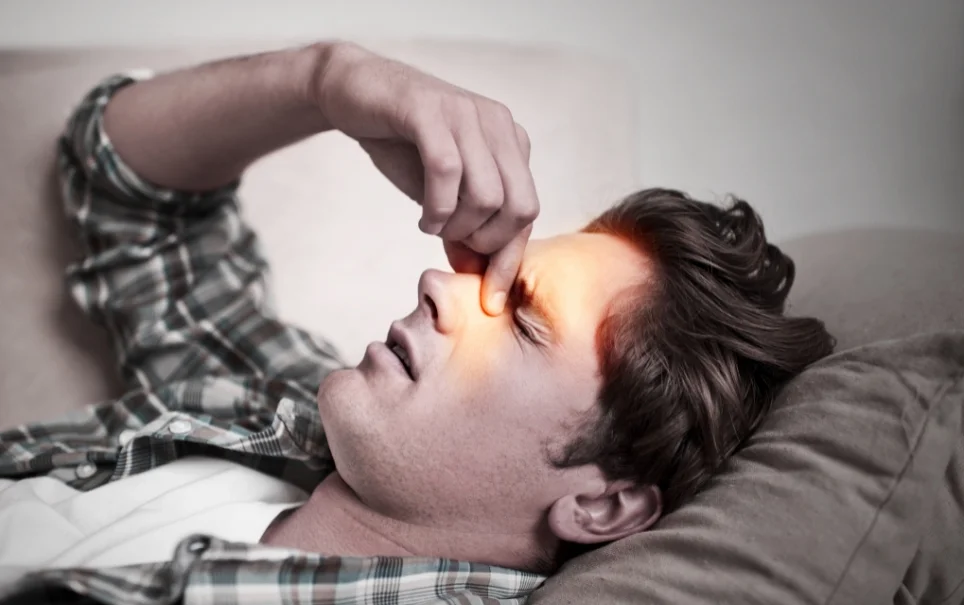
Does Sinus Infection Cause Tinnitus? An In-depth Exploration of the Interconnection Between Your Ears and Sinuses!
Can a Sinus Infection Cause Tinnitus?
Yes, a sinus infection can indeed lead to tinnitus. The complexities of our auditory system involve a delicate balance within the middle ear, inner ear, and sinus cavities. When sinusitis occurs, the inflammation or blockages in the sinuses can sometimes trigger or worsen tinnitus. That relentless ear ringing may well be linked to a sinus infection. Resolving sinus issues could alleviate this symptom. Let us explore how tackling sinusitis might offer relief from the bothersome tinnitus, providing a clearer understanding of this connection between sinus infections and ear-related issues.
The Complex Interplay of the Ear and Sinuses
To understand the connection between sinus issues and that ringing in your ears (tinnitus), you need to know a bit about how your ear and sinuses work together. The ear has different parts – the middle ear, inner ear, and sinuses. They all play a role in how we hear and stay balanced. When something goes off in these parts, it can cause problems like tinnitus, that pesky ear ringing. This link helps us see how problems like sinusitis can trigger or make tinnitus worse.
The Middle Ear
The middle ear is located behind the eardrum and is a small, air-filled cavity that contains three tiny bones called ossicles – the malleus, incus, and stapes. These ossicles act as conductors by transmitting sound vibrations from the eardrum to the inner ear. Any interruption in this process can have an impact on our ability to hear.
The Inner Ear
Deep within the skull, the inner ear is a fluid-filled structure consisting of the cochlea, which is responsible for translating sound vibrations into electrical signals that the brain can process. Additionally, the inner ear contains the vestibular system, a crucial component for maintaining our sense of balance.
Sinus Cavities
Sinus cavities are air-filled spaces within the skull bones. They play a role in regulating temperature and humidity in the nasal passages, ensuring optimal conditions for air intake. These cavities are connected to the middle ear through Eustachian tubes, which are vital for equalizing the pressure in the middle ear.
Unraveling the Connection: Sinusitis and Tinnitus
Sinusitis, an inflammation of the sinus cavities, can trigger tinnitus through various mechanisms. One common pathway involves the obstruction of the Eustachian tubes. These tubes are responsible for maintaining equalized pressure in the middle ear. When they become blocked, fluid can accumulate within the middle ear, exerting pressure on the eardrum and inner ear, ultimately leading to tinnitus.
Furthermore, sinusitis can promote inflammation within the middle ear or inner ear. This inflammation can damage the nerves and hair cells in the inner ear, contributing to the onset of tinnitus. Congestion in the nasal passages caused by sinusitis can also hinder sound waves from reaching the eardrum, thereby exacerbating the condition.
Does Sinusitis Trigger Tinnitus? Unraveling the Connection and Finding Relief
The good news is that treating sinusitis can alleviate tinnitus symptoms in many cases. Here are some common treatment options for sinusitis:
Antibiotics : If the sinus infection is bacterial in nature, antibiotics can effectively combat the infection and relieve sinusitis symptoms.
Decongestants : Decongestants can provide relief from nasal congestion, reducing the likelihood of sinusitis-related tinnitus.
Pain Relievers : Over-the-counter pain relievers can help manage the discomfort and inflammation associated with sinusitis.
Saline Nasal Sprays : Saline nasal sprays can aid in clearing mucus and alleviating congestion, addressing the root cause of sinus-related tinnitus.
Humidifiers : Using humidifiers can introduce moisture into the air, promoting sinus health and mitigating congestion.
Sinus Cocktail Shots : It is effective treatment used to treat sinus infections, which helps relieve tinnitus, a ringing or buzzing sound in the ears. Ask you doctor if you can get Sinus Cocktail Shots.
In some instances, surgery may be necessary to drain the sinuses or remove obstructions, providing lasting relief.
Tinnitus Relief Strategies
While tinnitus may not have a definitive cure, there are several strategies that individuals can employ to manage tinnitus and alleviate its symptoms:
Sound Therapy : Sound therapy involves the use of white noise or soothing sounds to reduce the perceived volume of tinnitus. It can be an effective method for managing the condition.
Cognitive-behavioral therapy (CBT) : CBT is a therapeutic approach that helps individuals modify their thoughts and behaviors to better cope with tinnitus and reduce its impact on their daily lives.
Hearing Aids : Hearing aids are valuable tools for those with tinnitus. They amplify external sounds, making it easier to hear while potentially masking the persistent ringing.
Medication : In certain cases, healthcare providers may prescribe medication to manage tinnitus symptoms. However, the efficacy of such treatments can vary among individuals.
It’s essential to consult a healthcare professional if you experience tinnitus to rule out any underlying medical conditions and explore appropriate treatment options.
Emerging Hope for Tinnitus
In addition to the discussed treatments, there is ongoing research into innovative approaches to tackle tinnitus. These emerging treatments offer hope for individuals who do not respond to conventional therapies:
Transcranial Magnetic Stimulation (TMS)
TMS is a non-invasive treatment that employs magnetic fields to stimulate the brain. Some studies have indicated its effectiveness in reducing tinnitus symptoms.
Neuromodulation
Neuromodulation utilizes electrical currents to stimulate nerves, and like TMS, it has shown promise in alleviating tinnitus symptoms in certain studies.
Gene Therapy
Gene therapy is a groundbreaking treatment that involves modifying genes to treat or prevent diseases. Currently under investigation, it holds the potential to provide relief for those struggling with tinnitus.
While these emerging treatments are in the early stages of development, they offer a ray of hope for individuals living with tinnitus, especially for those who have found little respite from conventional therapies.
Wrapping it up, the link between sinus infections and that pesky tinnitus isn’t a walk in the park. It’s a bit like untangling a set of earphones that have been in your pocket too long. But getting to grips with how sinusitis can spark off tinnitus is key to finding the right treatment. And let’s not forget, tinnitus can be a real party pooper, affecting your day-to-day life. So, don’t be shy about getting professional help. With medical science moving at the speed of light, we’re hopeful for more effective treatments on the horizon, bringing sweet relief to those battling the constant ear ringing. Was this helpful? Your feedback helps to improve my responses for you






